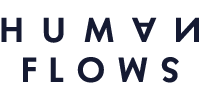Palermo in these recent years has faced challenging transformations able to reshape dramatically its identity.
There are many reasons, at many different scales, that can explain “why” and “how” this reshaping happened, but without any doubts, a core part of this engine of transformation was the City’s crave to redesign its mobility policies at any level: from the local-scale as the development of new A-to-B urban mobility services and infrastructures, to the global-scale as the migration policies adopted in clear contrast with the Italian national government.
The “whys” and “hows” people move “from”, “to”, or “through” Palermo is also at the core of the third UN Urban Thinkers Campus hosted in Palermo called “Human Flows” and of its open call for abstract that will select contributors for presentation and publication of a book (please check the details on abstract submission at the end of the call).
“Human Flows” call is developed in three interlocked tracks designed to better understand where these “flows” can bring cities like Palermo closer to the goals of the New Urban Agenda:
1_
INFRASTRUCTURES & POLICIES.
Coordination Prof. Tullio Giuffrè (University of Enna Kore)
More than ever, the reform of mobility systems is one of the key challenges facing the world.
In an era of almost zero resources and with the constant growth of urban population, there are two key strategic paths cities must take to respond to environmental and capacity challenges.
The first approach might be called “Adapt the system”, i.e. to redesign rules, regulations and implement incremental improvements on the current infrastructure to adopt it to new transportation means (e.g., urban aerial mobility, fully automated vehicles and ships).
The second one, “Network the system”, in a few words, means to work toward an integrated and customer-centered mobility. This approach needs even more complex, visionary and holistic policies able to find opportunities both in freight and passengers transport, at the urban and international scale, working at the same time on today’s issues and tomorrow’s sustainability goals. In this context, all mobility solutions providers must master three key approaches simultaneously: Anticipate, Innovate and Transform.
2_
SERVICES & DATA.
Coordination Domenico Schillaci (PUSH Design Lab)
New technology and mobility services are changing the way people move around the city.
Trying to make urban mobility more efficient and “smart”, in these last 15 years public authorities and private companies have pushed Shared Mobility, Demand Responsive Transport (DRT) and Intelligent Transportation Systems (ITS) aimed at implementing Mobility as a Service (MaaS) paradigm.
Nowadays, with just a swipe on their phone, people have the opportunity to “immediately” share (or rent) almost any kind of vehicle (or driver) and have real-time-multiple-criteria decision support systems to help them out making cheap, fast or environmentally friendly mobility choices.
But recently researchers, planners and policy makers are reasonably arguing whether these services are actually helping cities in achieving SDGs goals and implementing the New Urban Agenda strategies.
To have access to their mobility datasets and thus have the opportunity to mobilize them for the public interests, many cities are re-negotiating their contracts with digital services providers.
3_
RIGHTS & LAWS.
Coordination Giorgia Mirto (University of Bologna) and Simone Tulumello (University of Lisbon)
Putting the issue of rights and laws, which are defined at the international and national level, into discussion in an event focused on the urban is just apparently a contradiction.
Rather, the urban scale and the local one more generally are particularly appropriate to expose and unravel the deep contradictions at the center of the alleged “migrant crisis”. These contradictions are particularly evident in the conflict between restrictive immigration policies pushed in Europe by governments of all orientations in the name of the defense of the national demos on the one hand, and progressive policies/practices attempted by urban administrations and generally supported by urban constituencies on the other.
This dichotomy shows that only by looking at multiple scales can basic human rights – such mobility and migration – be upheld, and laws designed that do not conflict with said rights.
Instructions for submission.
Please submit your abstract by October 14th, 2019, via the form below. The abstract should be at maximum 2000 characters long.
Decisions on the acceptance of the proposals will be given by October 21st 2019, and you will have to confirm your participation by October 27th 2019. Participation to the “Palermo Urban Thinker Campus Human Flows” (November 14-16th) is free of charge for speakers and attendees alike.


